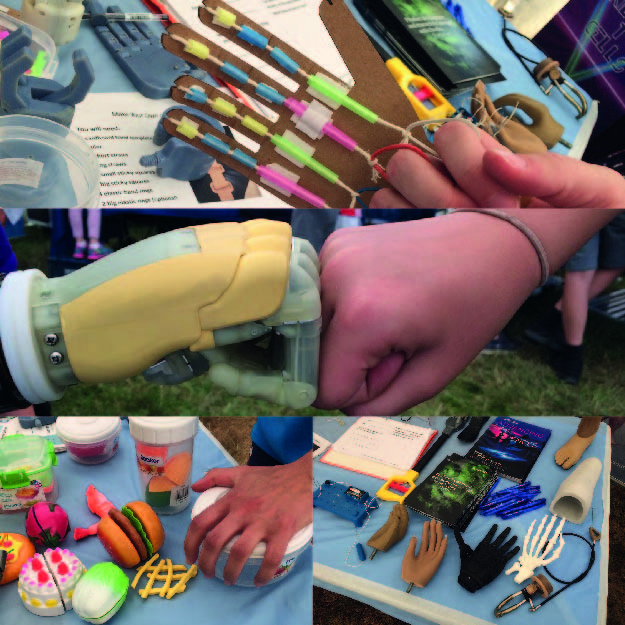 IMAGE COPYRIGHT photos taken by project team
IMAGE COPYRIGHT photos taken by project team People and Prosthetics
Have you ever thought what it would be like to do the things you do every day if you did not have two hands?
Would it be harder to do everyday activities, like preparing food and getting dressed?
Have you ever thought about the range of different people involved in developing prosthetic hands?
How can we design and fit prosthetic hands if we don't have this experience ourselves?
How can we learn from people with hand impairments so that we can develop a more inclusive world around us?
This interactive exhibit lets you try out some of the tools we use to understand the challenges in doing everyday activities with a hand impairment or absence. You can also meet the different types of health care professionals, engineers and health scientists who help develop and fit replacement hands and find out about the diverse jobs you could do to help people needing prosthetics.
Would it be harder to do everyday activities, like preparing food and getting dressed?
Have you ever thought about the range of different people involved in developing prosthetic hands?
How can we design and fit prosthetic hands if we don't have this experience ourselves?
How can we learn from people with hand impairments so that we can develop a more inclusive world around us?
This interactive exhibit lets you try out some of the tools we use to understand the challenges in doing everyday activities with a hand impairment or absence. You can also meet the different types of health care professionals, engineers and health scientists who help develop and fit replacement hands and find out about the diverse jobs you could do to help people needing prosthetics.
You may also like

Bonkers Biomaterials for bones and bacteria
Bones are very important in the body as they help provide structure, allow us to move, and protect our vital organs such as the brain, heart, & lungs. Bones are also incredibly str ...Read More
Highfield Campus

Organ-ise Me
Do you know your liver from your lungs? Your brain from your bone? Join us with our interactive exhibit to have a go at organising the organs of the body, and see what our organs l ...Read More
Highfield Campus
 - v2.jpg)
